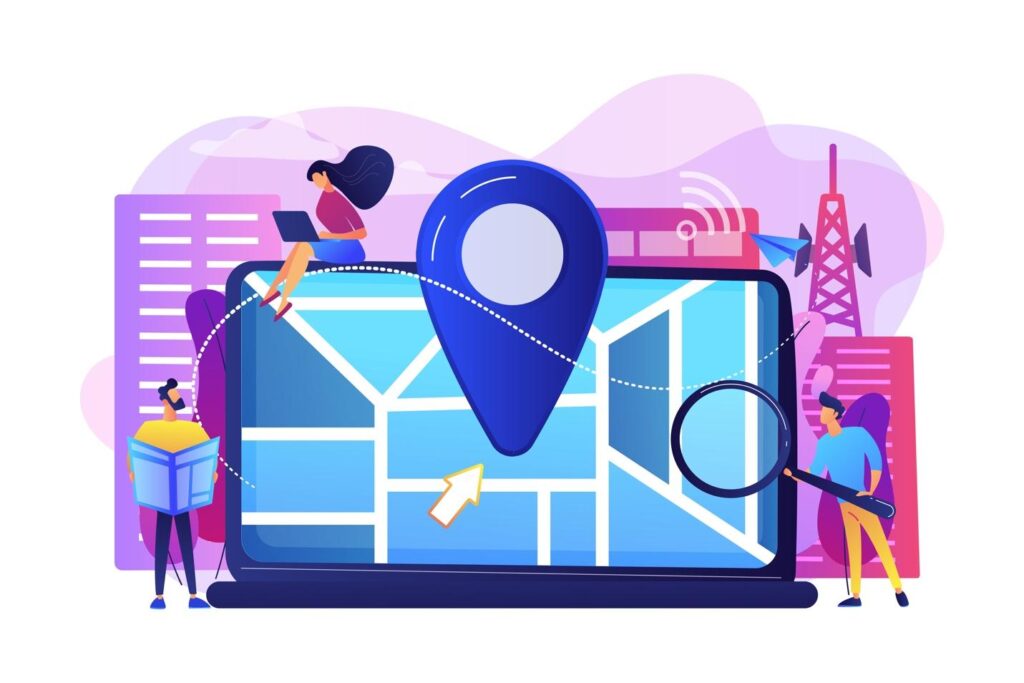Creating excellent leads is crucial to any legal firm’s expansion and profitability. Whether you work as a solo law firm or as a member of a big legal team, your ability to attract new business can significantly impact your firm’s clientele and income.
Law firms can generate leads through various methods, such as developing a polished web presence, using social media, and producing educational content. This manual will walk you through every stage of the process while providing helpful tips and tactics created especially for the legal sector.
You’ll discover how to pinpoint your potential customers, optimize your website, create exciting content, and use various marketing platforms to generate and nurture leads.
We will also discuss crucial ethical issues and best practices to ensure that your lead-generating campaigns are efficient and adhere to legal advertising requirements. Using the information and resources in this guide, you can improve your law firm’s marketing and attract more business.
Understanding Lead Generations for Law Firms

Lead generation draws in and turns strangers into prospective clients who express interest in your firm’s services. This entails using various techniques to encourage customers to contact your business via email, phone, or the internet.
Lead creation is essential for law firms since it facilitates the acquisition of new clients. A legal practice cannot expand or prosper without new clients. Effective lead generation ensures that your company has a constant supply of prospective customers to maintain its success.
What Is a Sales Funnel for Law Firms?
A law firm’s sales funnel is a tactical marketing instrument intended to lead prospective customers from their first point of contact with your business to their conversion into paying customers.
Here’s a summary of how it functions with SEO optimization to help you increase your web presence and generate more leads.
Stage 1: Awareness
The objective at the top of the funnel is to increase general awareness of your legal practice. This is the initial point of interaction between potential customers and your brand.
Effective tactics include using social media channels to reach a large audience, optimizing websites for search engines, and content marketing through blog entries.
The informational content should enlighten potential customers about your offerings and areas of expertise.
Stage 2: Consideration
The funnel gets narrower at the contemplation stage once prospective clients are aware of your business. Here, customers are weighing their options and thinking about hiring you.
This stage entails more focused marketing initiatives, like customized email campaigns, in-depth case studies, and endorsements that highlight the skills and accomplishments of your company.
The information should promote trust and position your firm as the best option for their legal needs.
Stage 3: Decision Making
The emphasis switches to turning leads into clients at the decision stage, which is the narrowest portion of the funnel.
This entails personal interaction via follow-up conversations, consultations, and in-depth talks about how your services can precisely meet the needs of the prospective client.
Here, calls to action that are both clear and persuasive are essential for influencing prospects to hire your firm.
Stage 4: Retention and Referral
This bonus stage, which isn’t often included, concentrates on keeping up positive ties with current clients in order to encourage recommendations and repeat business.
Sustaining client satisfaction through exceptional service and frequent updates can result in favorable evaluations and referrals, both of which are crucial for long-term company expansion.
Law firms can strategically take prospective clients through a journey from early awareness to devoted clients by comprehending and putting into practice a sales funnel.
What is the Lead Generation Process for Law Firms?
Given the intense competition in the lawyer lead generation industry, it’s critical to put in place efficient inbound digital marketing tactics that will set your firm apart.
Creating a streamlined process that leads prospective clients to your business and helps them convert to paying customers is the aim. Here’s a step-by-step lead generation process for law firms:
Step 1: Discovery
Make sure your company is visible on several marketing channels, including social media, internet ads (PPC), blogs, videos, and search engines (via search engine optimization—“SEO”).
Produce and distribute interesting content that answers frequently asked legal questions and benefits your intended audience, drawing them to your law firm.
Step 2: Call to Action (CTA)
In order to persuade prospective clients to proceed, include CTA in your content that is both clear and persuasive. This may be requesting a consultation, downloading an eBook, or subscribing to a newsletter.
To get the most out of CTAs, strategically arrange them on your blog posts, adverts, social network profiles, and website.
Step 3: Landing Page
Send visitors to attractive, conversion-optimized landing pages from your call-to-action. Make sure these sites load quickly, are responsive to mobile devices, and are easy to use.
Make it obvious to a potential client what your organization can offer and what they stand to gain from working with you.
Step 4: Gather Data
Make use of clear and basic forms on your landing pages to obtain visitors’ information. Only request the information you truly need in order to reduce confusion and boost the chance that forms will be filled out.
Request the visitors’ contact information in exchange for useful resources like exclusive content, downloadable guides, or complimentary consultations.
Step 5: Follow-Up
Quickly follow up with a note to thank the lead and offer helpful details. This could be a confirmation message, a thank-you email, or an overview of your offerings.
Create a nurturing campaign that consists of a sequence of follow-up emails or communications aimed at adding value, fostering confidence, and maintaining your company’s prominence in the lead’s mind as they move through the decision-making process.
Top 10 Lead Generation Strategies for Small Law Firms
| Strategy | Best For | Key Feature |
| Build a Strong Law Firm Website | Enhancing online presence | User-friendly design, mobile-responsive, and optimized for SEO |
| Optimize for Local SEO | Attracting local clients | Improves visibility in local searches |
| Create High-Quality Content | Establishing authority | Provides valuable information and boosts SEO |
| Leverage Google Ads | Reaching active searchers | Targets specific keywords and geographic areas |
| Utilize Social Media Marketing | Engaging potential clients | Shares content and engages with audience |
| Build Referral Networks | Generating referrals | Forms alliances for mutual referrals |
| Offer Free Consultations | Drawing in new clients | No-cost consultations to assess client needs |
| Encourage Online Reviews | Building reputation | Positive client feedback to attract more clients |
| Implement Email Marketing | Maintaining client connections | Regular newsletters and personalized campaigns |
Small law firms can use these most effective methods to expand their clientele and draw in new business. These techniques include developing robust referral networks, producing high-quality content, and optimizing your internet presence.
Build a Strong Law Firm Website

To have a strong online presence that draws in and converts prospective clients, you need to build a law firm website.
The cornerstone of your digital marketing strategies is a polished, easy-to-use website that highlights your experience and facilitates client communication.
A well-designed website can greatly increase the reputation and visibility of your company. This entails providing useful content, guaranteeing mobile responsiveness, and having a simple, contemporary design.
Components of a Strong Law Firm Website
- Professional Design: Make a layout that is clear, sophisticated, and displays the legitimacy and experience of your company. Make sure there is a lot of white space on your pages.
- Mobile Responsive: Make sure your website works well and loads fast on mobile devices.
- Engaging Content: To increase trust and boost SEO, update your blog frequently with tutorials, case studies, and user reviews.
- Powerful CTAs: To encourage visitors to take the next action, like arranging a consultation or subscribing to your newsletter, use concise and eye-catching calls to action (CTAs).
- SEO Optimization: To raise your content’s search engine ranks, use pertinent keywords and optimize it.
- Fast Loading Speeds: To improve user experience and SEO, optimize your website’s code and pictures to ensure that it loads swiftly.
- Compliance: Verify that your website conforms to all applicable laws and industry norms, especially those pertaining to accessibility and privacy.
Best Tools/Software
- WordPress (For creating and managing your website)
- Yoast SEO (For optimizing your website content for SERPs)
- Google Analytics (For tracking user behavior and website performance)
Optimize for Local SEO

Local search engine optimization is crucial for small law firms looking to draw in business from the local area. Prospective clients frequently mention their location in their search queries for legal services.
Your company’s visibility will increase if it ranks higher in these localized search results thanks to local SEO optimization. This entails maintaining your Google My Business profile, utilizing local keywords, and ensuring your company is included in pertinent directories.
Building trust and making it simpler for local clients to identify and get in touch with you are two benefits of having a solid local SEO strategy.
Key Features
- Google My Business: Create and refine your GMB profile to make it show up in local searches and on Google Maps.
- Local Keywords: To target local searchers more successfully, use keywords containing your city or region.
- Online Directories: To improve visibility, make sure to list your company in reputable local and legal directories.
Best Tools/Software
- SEMrush (For Keyword Research and Competitor Analysis)
- Moz Local (For Managing and Optimizing Local Listings)
- Google My Business (For Managing Your Local Business Profile on Google)
Create High-Quality Content

Creating top-notch content is crucial for small law firms looking to draw in and involve prospective clients. Content that positions your firm as an authority in your legal specialty includes blog entries, videos, and manuals.
By giving your audience valuable information, you may gain their trust and increase their likelihood of using your services.
Additionally, you can increase SEO efforts with high-quality content. It increases your website’s visibility in search results and may generate more leads and traffic.
Key Features
- Educational Blogs: Writing articles that address frequently asked legal questions and give prospective customers helpful information.
- Informative Video Content: Producing films breaking legal ideas into clear, concise language.
- Detailed Guides: Providing in-depth guides on particular legal matters your prospective clients may encounter.
Best Tools/Software
- WordPress (For Creating and Managing Your Blog)
- Canva (For Designing Graphics and Visuals for Your Content)
- YouTube (For Hosting and Sharing Your Informative Videos)
Leverage Google Ads

Google AdWords is a very effective tool for small law firms trying to connect with prospective clients who are actively looking for legal services. Your business can rank highly in search results by utilizing tailored adverts to bring relevant users to your website.
This is a good way to compete with bigger companies because it might result in more inquiries and conversions.
You may target particular phrases and geographical regions with Google AdWords to make sure your ads reach the correct people and yield a positive return on investment.
Key Features
- Targeted Keywords: Place a bid on terms prospective clients use to ensure your advertisements appear in relevant searches.
- Ad Extensions: To increase visibility, add more details to your adverts, including your location or phone number.
- Geotargeting: Targeting particular regions with your advertisements to more effectively and efficiently reach local customers.
Best Tools/Software
- Google Ads (For Creating and Managing Your Ad Campaigns)
- Keyword Planner (For Finding the Best Keywords to Target in Your Ads)
- Google Analytics (For Tracking the Performance of Your Ads and Website Traffic)
Utilize Social Media Marketing

One effective way small and solo practices can engage with prospective clients is through social media marketing. Social media sites such as Facebook, LinkedIn, and Instagram let you publish material, interact with others, and advertise your products for free.
By keeping an active social media presence, you may establish your firm’s competence, increase website traffic, and increase brand awareness. Social media also offers chances to reply to questions, engage with followers, and build connections that may result in client recommendations.
Key Features
- Content Sharing: To keep your audience informed and interested, regularly publish exciting and educational content.
- Targeted Ads: Showing advertisements to prospective customers most likely to require your services by focusing on particular demographics.
- Engagement: Quickly replying to messages and comments to foster relationships and foster business contacts.
Best Tools/Software
- Hootsuite (For Managing and Scheduling Social Media Posts)
- Facebook Ads Manager (For Creating and Managing Targeted Social Media Ads)
- LinkedIn (For Professional Networking and Sharing Content)
Build Referral Networks

Creating referral networks is an effective way for solo and small law firms to increase their lead generation from word-of-mouth. You can get client references from other firms and experts.
Networking can facilitate building productive ties with other lawyers, financial advisors, and local companies. These relationships may result in a continuous flow of recommendations from clients, improving the standing of your company and growing your clientele.
Key Features
- Professional Alliances: Joining forces with other professionals who can recommend clients to your firm.
- Mutual Referrals: To the mutual advantage of both parties, you should create a system of reciprocal referrals.
- Networking Events: Attend regional business gatherings and industry conferences to meet possible referral partners and broaden your network.
Best Tools/Software
- LinkedIn (For Connecting with Other Professionals and Building Your Network)
- HubSpot CRM (For Managing Relationships and Tracking Referrals)
- Eventbrite (For Finding and Attending Networking Events)
Offer Free Consultations

One of the best ways small law firms can draw in new business is by providing free consultations. This method makes it simpler for prospective consumers to get assistance by enabling them to talk about their legal concerns without committing financially.
You can establish credibility, demonstrate your knowledge, and outline how your services can help them throughout the session. By offering free consultations, you can evaluate clients’ demands and see if they are a good fit for your organization.
Furthermore, websites such as Judigo Legal provide free online chat services where anybody can receive free legal assistance from qualified solicitors, regardless of location or income. This can give small law firms more possibilities to engage with new clients and a wider audience.
Key Features
- First Meeting: Discuss the client’s legal problems and issues over a free, no-obligation consultation.
- Professional Guidance: To establish credibility and show your knowledge, provide professional analysis and initial guidance.
- Client Assessment: Assessing the client’s situation to ascertain the best course of action and whether or not they would benefit from your services.
Best Tools/Software
- Calendly (For Scheduling Appointments and Managing Consultation Bookings)
- Zoom (For Conducting Virtual Consultations)
- Judigo Legal (For Free Online Chat Services with Potential Clients)
Online Reviews

For small and solo practices, online reviews are essential since they establish reputation and draw in new business. Positive client testimonials have a significant influence on search engine results and the reputation of your business to those searching for legal services.
Getting clients to provide reviews on sites like Google and Yelp can help prospective clients select you over other firms. Potential clients frequently use these reviews to help them decide which law firm would provide them with the best experience.
You may demonstrate your appreciation for customer input and dedication to offering top-notch service by often monitoring and answering reviews.
Key Features
- Feedback Request: Approaching pleased customers to post evaluations on well-known review sites.
- Review Monitoring: Consistently reviewing and responding to reviews to communicate with customers and resolve issues.
- Showing Positive Reviews: Ensure your website and social media pages have favorable customer evaluations.
Best Tools/Software
- Google My Business (For Managing and Responding to Google Reviews)
- Yelp for Business (For Monitoring and Engaging with Yelp Reviews)
- BirdEye (For Collecting, Managing, and Showcasing Client Reviews)
Implement Email Marketing

Email marketing is a valuable tool for small law firms to stay in touch with their past and present clientele. By regularly sending newsletters and updates, you can offer insightful legal knowledge, advertise your services, and provide useful information.
By nurturing leads and fostering client connections, email marketing ensures that your company is at the forefront of client’s minds when they require legal assistance.
Additionally, you can segment your audience with personalized email campaigns according to their requirements and interests, improving the relevance and interest of your communication.
Key Features
- Newsletter Creation: To keep clients informed, send out newsletters regularly containing news, legal advice, and firm updates.
- Personalized Campaigns: Send emails with offers and information appropriate to specific audience segments.
- Performance Tracking: It involves monitoring conversions, click-through rates, and open rates to gauge the success of your email marketing.
Best Tools/Software
- Mailchimp (For Creating and Managing Email Campaigns)
- Constant Contact (For Email Marketing and Performance Tracking)
- HubSpot (For Comprehensive Email Marketing and CRM Integration)
Attend Networking Events

One of the most essential ways small law firms can create relationships and get leads is by participating in networking events. These gatherings offer networking opportunities with other professionals, referral partners, and possible clients.
Regularly participating in regional business conferences, industry events, and community get-togethers can help you build your professional network and raise awareness of your company.
Attending networking events also allows you to learn from legal professionals in the sector, contribute your experience, and remain current on industry trends. Creating personal connections at these gatherings might result in recommendations and long-term commercial prospects.
Key Features
- Local Business Events: Getting to know people in the community by attending events by local business associations.
- Industry Conferences: Attend conferences in the legal and business sectors to network with colleagues and potential clients.
- Community Gatherings: Volunteering and attending local events can improve your business’s reputation and visibility.
Best Tools/Software
- Eventbrite (For Finding and Attending Networking Events)
- Meetup (For Joining Local Business and Professional Groups)
- LinkedIn Events (For Discovering and Participating in Professional Events Online)
Conclusion
Any small or solo law firm that wants to expand and flourish must be able to generate leads. Whether you practice law alone or with a team, this guide has informed you of many strategies for drawing in new clients. We discussed using local SEO to make it easier for locals to find your business online.
Producing content of the highest caliber, such as blog entries and videos, can present your company as informed and reliable. You can use social media marketing and Google AdWords to reach more people needing legal assistance.
Creating networks of referrals and providing cost-free consultations are further ways to attract new customers. Positive internet evaluations can enhance your company’s reputation, and email marketing helps you stay in touch with both present and new customers.
You may network and get more business by going to networking events. Implementing these tactics can help your legal practice differentiate itself from the competition and draw in additional business.



